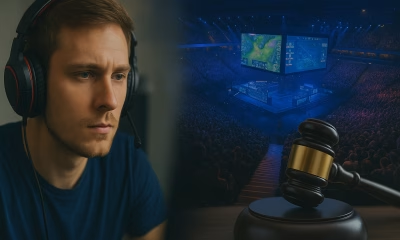General
Upcoming Book Reviews
In the dynamic and rapidly evolving world of esports, legal considerations have become increasingly pivotal. From player contracts to intellectual property rights, the legal landscape of esports is both complex and multifaceted. In light of this, we are thrilled to soon present reviews of three books that delve into various legal aspects of the esports industry, providing invaluable insights for players, teams, sponsors, and legal professionals alike.

1. “The Essential Guide to the Business & Law of Esports & Professional Video Gaming” by Justin M. Jacobson, Esq.

This comprehensive guide, penned by one of the leading attorneys in the esports domain, Justin M. Jacobson, Esq., provides a thorough exploration of the business and legal facets of esports and professional video gaming. The book covers the stakeholders in the esports business “ecosystem,” including talent, teams, publishers, and event organizers, and explores various legal fields involved with esports, such as intellectual property, employment, player unions, business investments, and more. It aims to be a vital resource for anyone looking to understand the legalities of the esports world, from contracts to copyright and beyond.
2. “eSport und Recht” by Dieter Frey (Editor)

The esports industry is experiencing exponential growth, and with it comes a myriad of legal challenges that need to be navigated by game developers, esports athletes, teams, event organizers, sponsors, associations, and investors. “eSport und Recht” provides practical answers to the legal challenges faced by these stakeholders. The handbook compiles all current legal questions from all relevant legal areas for esports, providing a comprehensive overview and practical insights into areas such as recognition as a sport, non-profit issues, legal status of actors, relationship between clans and professional esports athletes, organization of competitions, and marketing.
3. “Urheber- und kartellrechtliche Grenzen für Publisher im E-Sport” by Dwayne Bach

Unlike traditional sports, esports places game publishers at the center of the action, and every market participant must align with them to operate in the esports sector. Dwayne Bach’s book primarily deals with the question of the legal limits set by copyright and antitrust law to the special position of the publishers. It explores whether esports athletes have copyrights to their own gaming performance and discusses whether the Essential Facilities Doctrine can be used to argue for compulsory licensing in favor of a third-party event organizer. This book provides a deep dive into the legal boundaries and considerations for publishers in esports, offering a unique perspective on the intersection of copyright and antitrust law in the industry.
Image: Thad Zajdowicz via Flickr, CC0


















